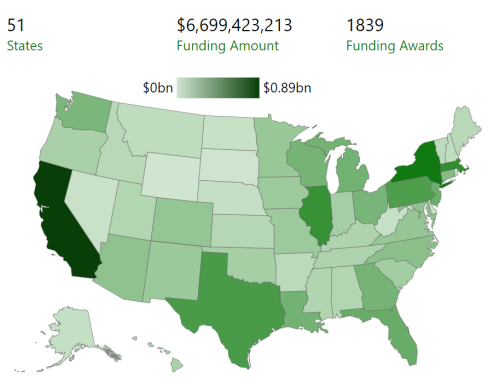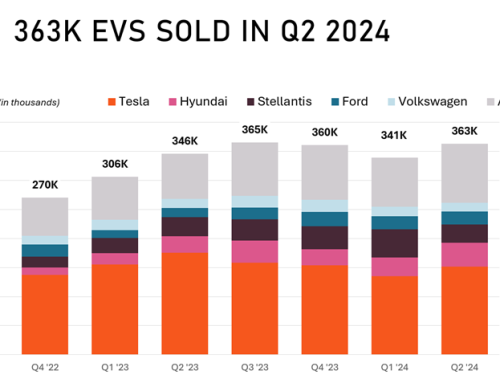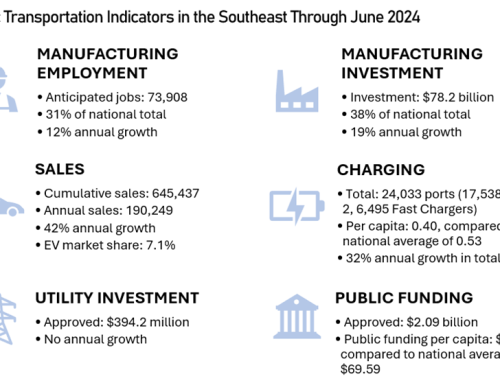
Image Source: Wikimedia Commons
At-home charging is the primary way most electric vehicle (EV) drivers in the United States power their vehicles, with around 80 percent of all charging occurring at home. This method is not only convenient and reliable but also more cost-effective than purchasing gasoline. However, for people living in apartments or condos, access to home charging can be difficult, making EV ownership less accessible. To ensure an equitable transition to EVs, it is essential that residents of multifamily housing have access to convenient, reliable, and affordable charging options where they live.
Installing EV charging infrastructure at multifamily housing isn’t a one-size-fits-all task. These buildings vary widely in their layouts and ownership structures, each requiring different strategies and investments. Berkeley Law’s recent policy brief, “Policy Strategies to Promote Equitable EV Charging Access for Multi-Family Housing Residents,” sheds light on these complexities, highlighting several multifamily housing arrangements that policymakers and program managers must consider, including:
-
Owner-occupied vs. rental: Rental multifamily homes present challenges with differing priorities between owners and tenants; while co-op and condo owners do not need to worry about the same owner/tenant split incentive challenge, they may struggle amongst themselves to align interests for charging infrastructure.
-
Old vs. new construction: Older buildings may need expensive electrical upgrades to install EV chargers but could also be candidates for broader energy efficiency improvements.
-
Affordable vs. market-rate: Affordable housing properties may have financial constraints but are often eligible for more incentive programs to support EV charging.
-
Large vs. small buildings: The building’s size plays a crucial role in determining the scale and type of EV charging solutions needed.
-
Dedicated on-site parking vs. off-street parking: The parking location influences ownership, pricing, and legal responsibilities for EV charging infrastructure.
-
Assigned parking vs. unassigned parking: Buildings without designated parking spaces face added complexity in providing and managing access to EV chargers.
There are several significant barriers to installing EV charging in multifamily housing. Berkeley Law’s policy brief identifies three central obstacles: high installation and operational costs, low demand and awareness among multifamily housing residents and building managers, and limited electrical and network capacity, especially in older buildings. Beyond these direct challenges, the report also raises concerns about “green gentrification.” The deployment of EV charging infrastructure could potentially lead to rent increases and the displacement of current multifamily housing residents, creating a new layer of inequity.
Further, neglecting to install EV charging infrastructure at multifamily housing contributes to existing transportation inequities, which is critical to consider in the clean mobility transition. RMI’s recent report, “Plugging into Mobility Needs at Lower-Income Multifamily Housing,” notes that over 40 percent of residents in America’s largest 100 cities live in multifamily housing. Lower-income residents of these dwellings face disproportionate challenges in accessing charging infrastructure, limiting their ability to benefit from the EV transition.
To address these issues, RMI partnered with the cities of Atlanta, Phoenix, and Portland (Oregon) to launch the Multifamily Charging Accelerator Project. This pilot initiative aims to identify charging solutions that meet the transportation needs of residents in lower-income multifamily homes. RMI researchers developed a scalable framework for policymakers, utilities, and other stakeholders to ensure that equity is prioritized in the e-mobility transition. Their recommendations include prioritizing community needs and engagement, fostering affordability, designing for local context and reliability, and forming meaningful and inclusive partnerships at the local level.
This Friday (September 13th) on EV Hub Live, we will be sitting down with Malcolm Johnson from UC Berkeley and Ellen Kennedy from RMI to discuss this recent research their organizations published on EV charging at multifamily housing, including barriers, equitable solutions, and examples. The episode will stream live at 1pm EST, with the option to add to your calendar here.


